The Days, Weeks, and Months Surrounding a Bladder Cancer Diagnosis
The days, weeks, and months surrounding a bladder cancer diagnosis can look different for each person. Some people experience the most common bladder cancer symptom (blood in urine) and are immediately referred to a urologist, diagnosed within weeks, and scheduled for their first treatment. Others may experience less common symptoms and be misdiagnosed with UTIs for months until their eventual diagnosis. Many people fall somewhere in between. In our 4th Annual Bladder Cancer In America survey, we asked 589 people diagnosed with bladder cancer about their experiences. We created the infographics below to share some top findings with you!
Delays in diagnosis
There are many reasons why a person could experience a delay in receiving a bladder cancer diagnosis. For example, some survivors report ignoring the early symptoms while others tell us that insurance difficulties kept them from making an appointment with a doctor.
Urologists most commonly diagnose bladder cancer
The first doctor you see for your bladder cancer symptoms may have been your primary care or family physician, your gynecologist, or an emergency room doctor. However, most people with bladder cancer (both men and women) are officially diagnosed by a urologist.
Seeking a second opinion
Getting a second opinion to confirm your diagnosis, review your pathology report, or consult on your treatment plan can help you make the best decision for you. Some people reported seeking a second opinion at diagnosis while others chose to get another opinion when looking to change their treatment plan.
First-line treatments
Treatments for bladder cancer can include intravesical treatments (meaning they’re delivered directly into the bladder) like BCG or some chemotherapy. They can also include surgery to remove part or all of the bladder. The most common first-line treatment reported by those who took our survey was the TURBT (transurethral resection of the bladder tumor).
Complementary therapies
About half of those who took our survey reported taking additional steps to try to improve their health and wellbeing while fighting bladder cancer. You should always consult your doctor before implementing any changes to your lifestyle.
We want to thank every person who completed this survey. Sharing your experience and contributing to bladder cancer research helps those new to bladder cancer and those living with it for many years to feel less alone.
The 4th Annual Bladder Cancer in America survey was conducted online from January through May of 2020. 589 people diagnosed with bladder cancer completed the survey.

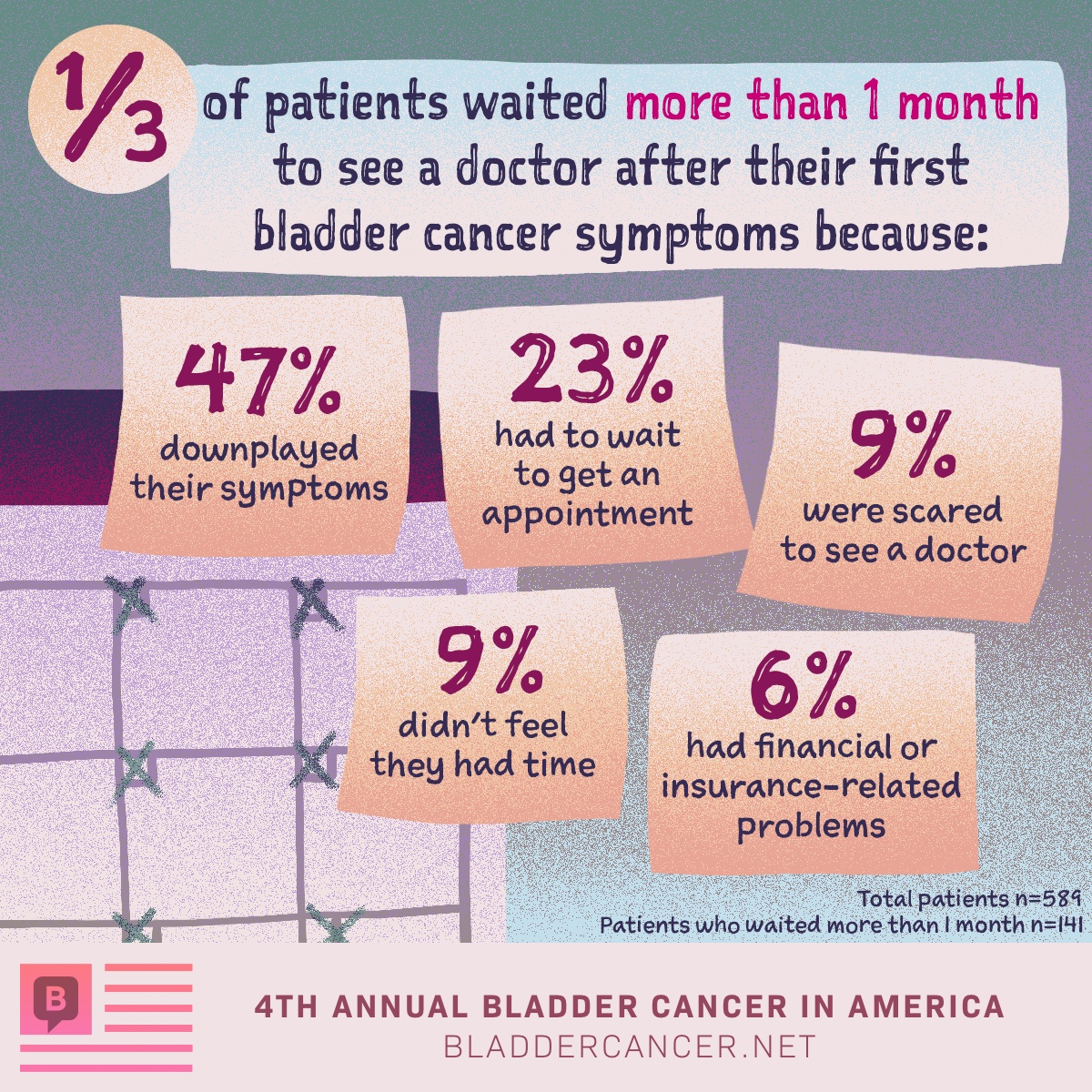
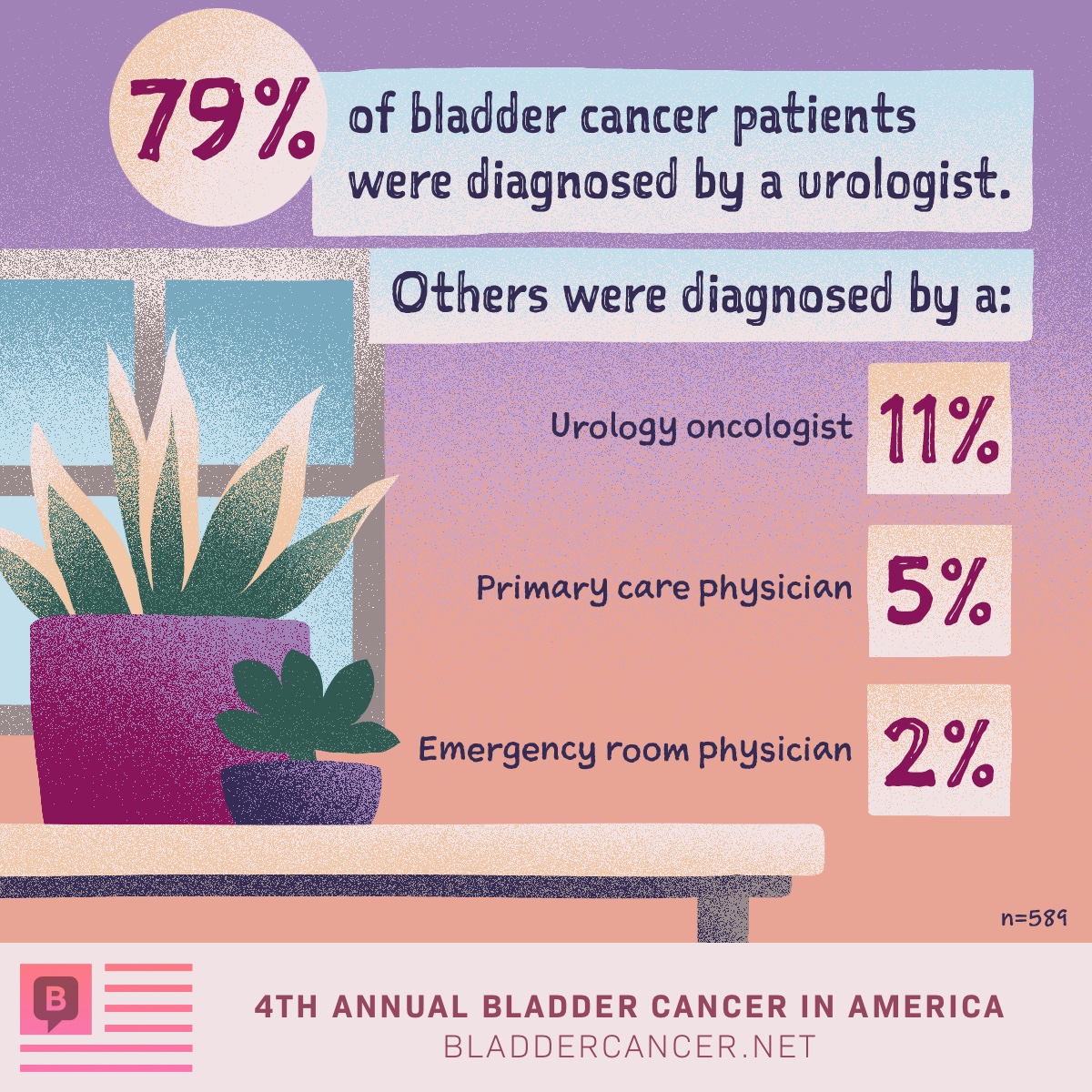
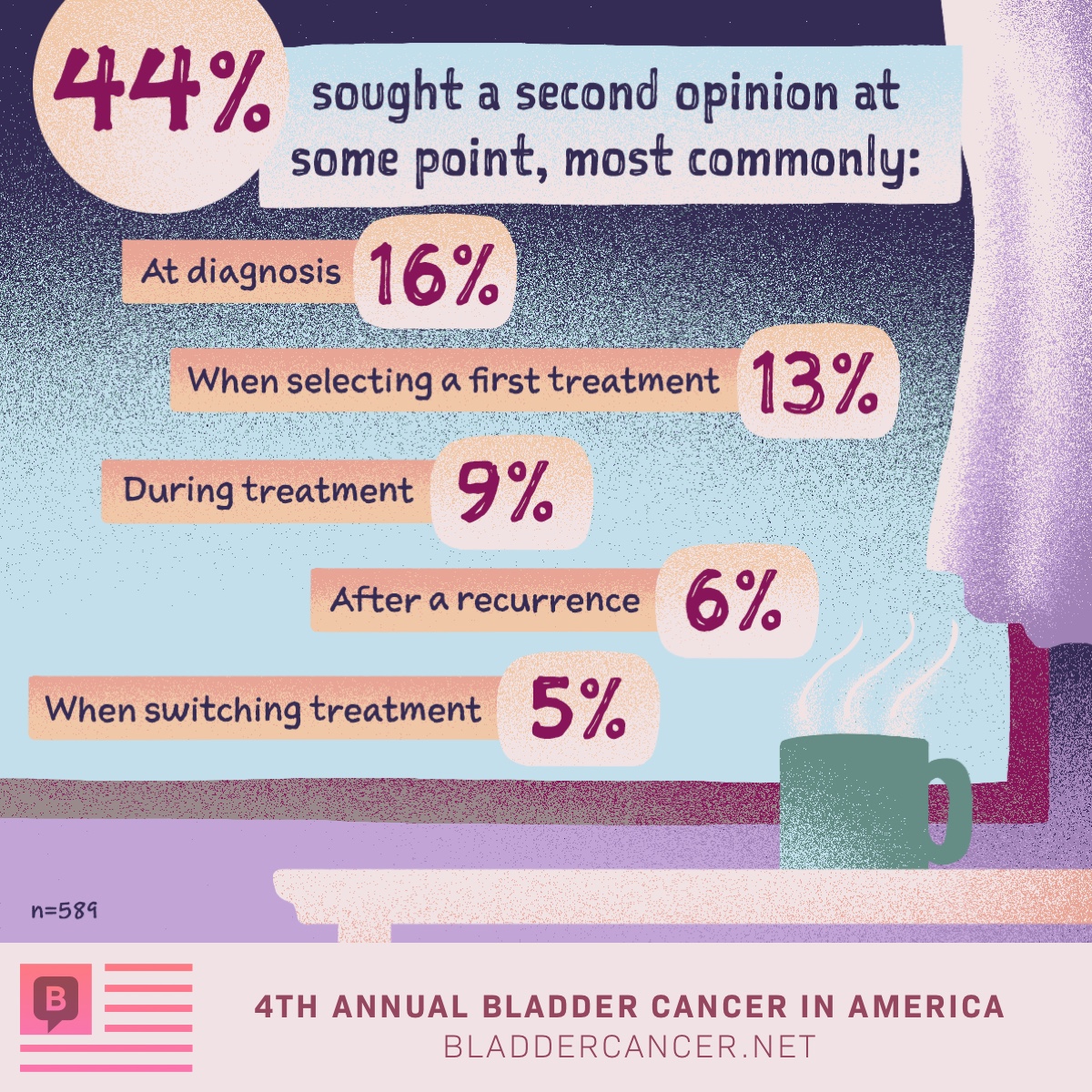
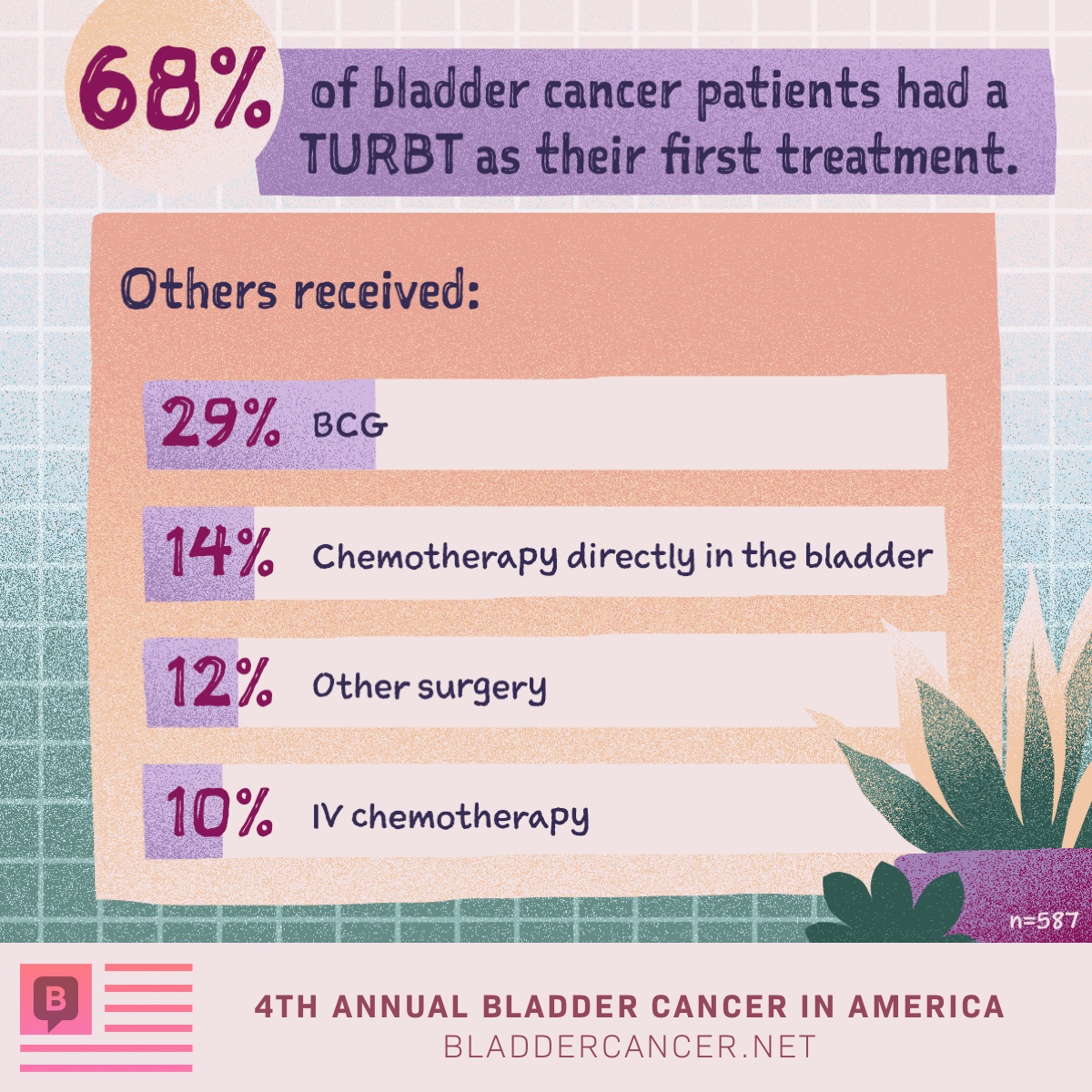
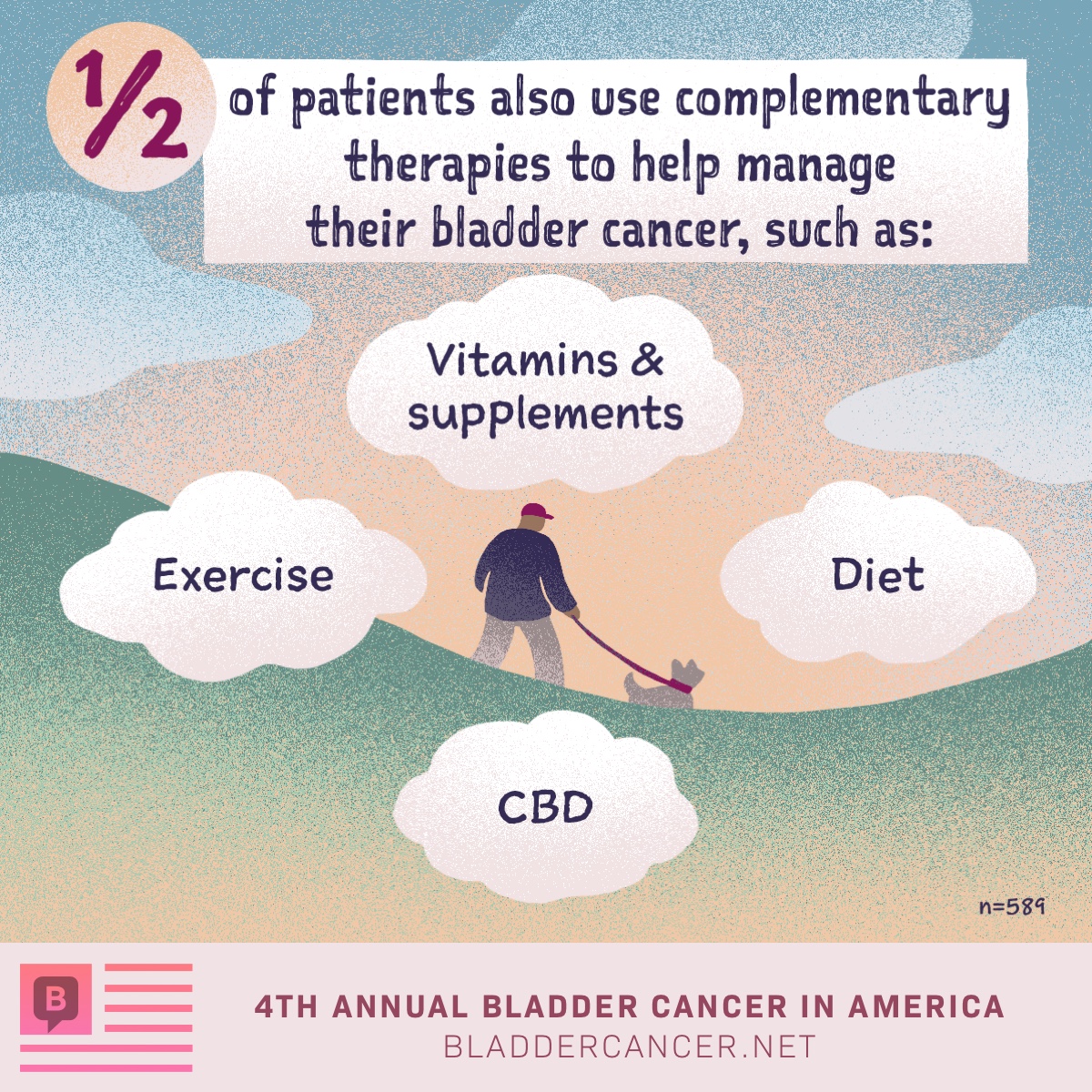
Join the conversation